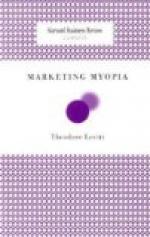A longing for her straightway seized the king; so he sent forward a man of his people to detain her. The king asked tidings of her and said, while announcing himself: “Shall I have an hour of dalliance with thee?”
“’Tis for that we have come hither under thy safeguard,” quoth she.
“Query, whence art thou and whence hast thou come?” says Eochaid.
“Easy to say,” quoth she. “Etain am I, daughter of Etar, king of the cavalcade from the elfmounds. I have been here for twenty years since I was born in an elfmound. The men of the elfmound, both kings and nobles, have been wooing me; but nought was gotten from me, because ever since I was able to speak, I have loved thee and given thee a child’s love for the high tales about thee and thy splendour. And though I had never seen thee, I knew thee at once from thy description: it is thou, then, I have reached.”
“No ‘seeking of an ill friend afar’ shall be thine,” says Eochaid. “Thou shalt have welcome, and for thee every other woman shall be left by me, and with thee alone will I live so long as thou hast honour.”
“My proper bride-price to me!” she says, “and afterwards my desire.”
“Thou shalt have both,” says Eochaid.
Seven cumals[3] are given to her.
[Footnote 3: I.e., twenty-one cows.]
Then the king, even Eochaid Feidlech, dies, leaving one daughter named, like her mother, Etain, and wedded to Cormac, king of Ulaid.
After the end of a time Cormac, king of Ulaid, “the man of the three gifts,” forsakes Eochaid’s daughter, because she was barren save for one daughter that she had borne to Cormac after the making of the pottage which her mother—the woman from the elfmounds—gave her. Then she said to her mother: “Bad is what thou hast given me: it will be a daughter that I shall bear.”
“That will not be good,” says her mother; “a king’s pursuit will be on her.”
Then Cormac weds again his wife, even Etain, and this was his desire, that the daughter of the woman who had before been abandoned [i.e. his own daughter] should be killed. So Cormac would not leave the girl to her mother to be nursed. Then his two thralls take her to a pit, and she smiles a laughing smile at them as they were putting her into it. Then their kindly nature came to them. They carry her into the calfshed of the cowherds of Etirscel, great-grandson of Iar, king of Tara, and they fostered her till she became a good embroideress; and there was not in Ireland a king’s daughter dearer than she.
A fenced house of wickerwork was made by the thralls for her, without any door, but only a window and a skylight. King Eterscel’s folk espy that house and suppose that it was food that the cowherds kept there. But one of them went and looked through the skylight, and he saw in the house the dearest, beautifullest maiden! This is told to the king, and straightway he sends his people to break the house and carry her off without asking the cowherds. For the king was childless, and it had been prophesied to him by his wizards that a woman of unknown race would bear him a son.




